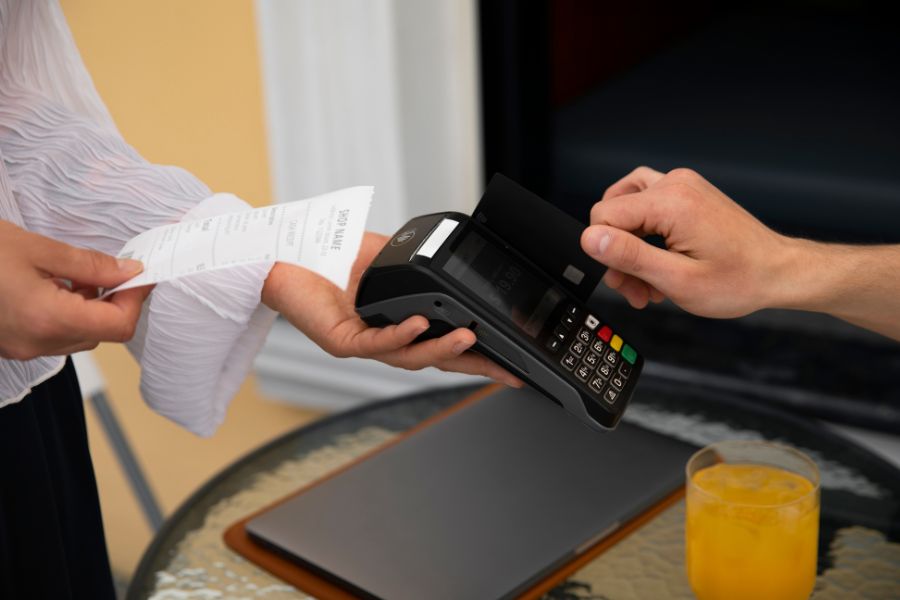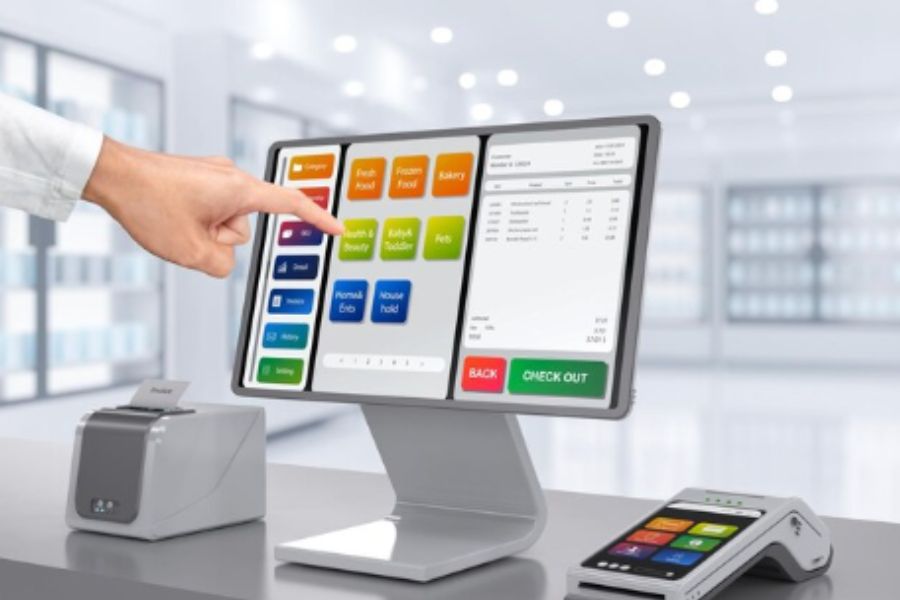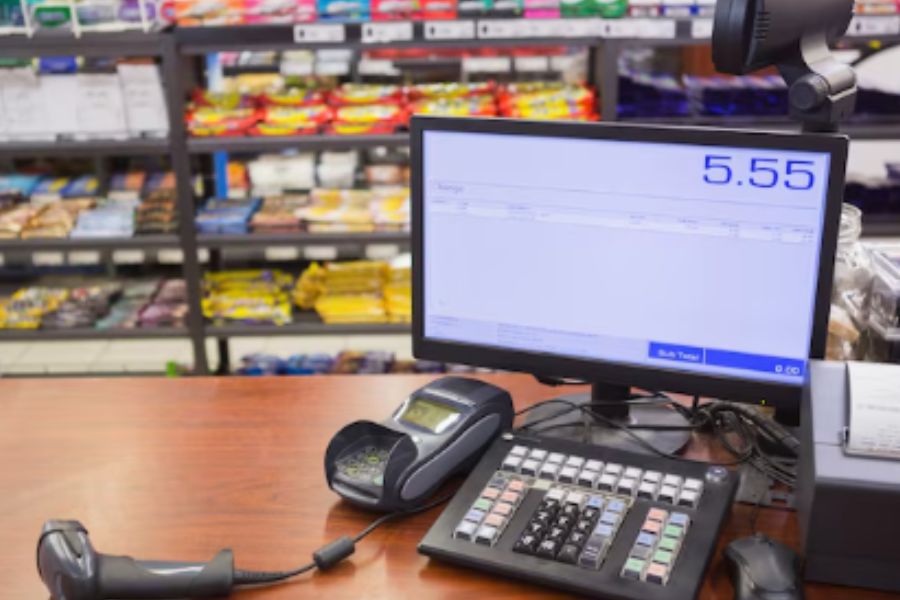Like many other types of software, POS systems have evolved into mobile (mPOS) and cloud-based solutions. They have become significant and powerful tools for ambitious global retailers, serving as the foundation of retail businesses rather than just a means of processing transactions.
The same retail point of sale tickets, it serves as proof of transaction and help businesses maintain compliance, inventory management, and customer satisfaction. This guide delves deep into retail POS tickets, their importance, best practices, and their future trends.
Highlight:
- Retail POS tickets serve as audit trails, helping businesses reconcile transactions, maintain compliance, and detect fraudulent activities.
- POS tickets provide accurate sales reporting by capturing every transaction in real time, reducing manual errors and giving retailers reliable data for audits, forecasts, and performance analysis.
The Significance of Retail Point of Sale Tickets
A retail POS ticket is an electronic or printed receipt generated at the time of a sale through a point-of-sale system. These tickets include details such as:
- Transaction ID
- Date and Time of Sale
- Product Descriptions and Prices
- Taxes and Discounts Applied
- Total Amount Paid
- Payment Method
- Cashier Information
These systems offer many benefits:
- Ensuring Financial Accuracy: Retail point of sale tickets serve as audit trails, allowing businesses to reconcile sales transactions efficiently. They decrease discrepancies in revenue reporting, securing accurate financial statements and tax compliance.
- Enhancing Inventory Management: Every POS ticket logs the items sold, helping retailers maintain accurate stock levels. This assures real-time inventory tracking, reducing stockouts and overstocking issues.
- Improving Customer Service & Returns: A well-documented POS ticket systematizes the returns and exchanges process. Customers rely on receipts for warranties, refunds, and purchases.
- Strengthening Fraud Prevention: Fraudulent transactions can significantly impact profits. Detailed POS tickets help detect and prevent fraudulent activities by maintaining an accurate record of all sales transactions.
Features of POS Tickets for Accurate Sales Reporting
To confirm your sales tickets support accurate reporting and customer satisfaction, they should include the following features:
- Unique Transaction ID: Every POS ticket should include a distinct transaction number. This prevents duplicate entries in sales records, simplifies order lookups, and ensures seamless record-keeping for financial audits.
- Barcode or QR Code: Incorporating a scannable barcode or QR code on each ticket allows quick access to transaction details. This feature speeds up returns and exchanges, assists in verifying purchases, and improves audit efficiency.
- Customer Information: Including relevant customer details, such as a name or loyalty program number, personalizes transactions. This helps businesses track purchase history, offer targeted promotions, and improve customer relationship management.
- Detailed Breakdown of Charges: To confirm full transparency, POS tickets should clearly display the subtotal, applied discounts, tax amounts, and final total. A well-structured breakdown minimizes customer confusion, minimizes billing disputes, and builds trust.
- Clear Refund & Warranty Policies: Clearly printed return, refund, and warranty policies on POS tickets provide customers with vital information upfront. This lowers potential misunderstandings and disputes, helping businesses manage post-purchase interactions smoothly.
Best Practices for Generating Accurate Retail Point of Sale Tickets
To guarantee accuracy, businesses must implement best practices that strengthen data entry, maintain systems, standardize procedures, and leverage software capabilities. The following sections outline key strategies for achieving precise retail point of sale tickets.
Ensuring Data Entry Accuracy
Retail point of sale tickets must be lower to reduce financial discrepancies, keep accurate inventory data, and guarantee customer satisfaction. Any errors in data entry can lead to mischarges, incorrect stock levels, and loss of customer trust. To mitigate these risks, retailers should focus on the following strategies:
- Staff training: Employees should understand the importance of accurate item scanning, price verification, and the correct application of discounts and promotions. Regular training programs ensure cashiers and sales associates stay updated on best practices and system upgrades.
- Use of barcode scanners: Manual data entry increases the likelihood of pricing errors and mislabeling. Using barcode scanners ensures that product details, including SKU numbers and prices, are entered automatically and accurately. According to a study by the National Retail Federation, retailers using barcode systems witnessed a 20% boost in order precision and a 30% drop in labor expenses.
Regular System Updates and Maintenance
Retailers must keep their POS software and hardware up-to-date to prevent errors and inefficiencies. Outdated systems may lead to pricing mismatches, inventory inaccuracies, and security vulnerabilities.
Regular updates help retailers stay compliant with tax regulations and payment processing standards. For example, in 2023, the UK government introduced new digital VAT reporting requirements, requiring businesses to update their POS software accordingly. Failing to maintain updated systems can result in compliance penalties and inaccurate sales reporting.
Implementing Standard Operating Procedures (SOPs)
Having clear, standardized processes ensures consistency and cuts errors in retail point of sale ticket generation. SOPs should cover:
- Data entry protocols: Employees should follow a step-by-step process for entering discounts, refunds, and promotions.
- Verification steps: Implementing a double-checking mechanism before completing transactions can help identify discrepancies.
- Dispute resolution: SOPs should define how to handle pricing disputes or incorrect charges to maintain customer trust.
For example, Apple’s retail stores follow a strict SOP for POS transactions, requiring staff to confirm product selections with customers before finalizing sales. This process significantly reduces post-purchase complaints and returns.
Utilizing POS Software Features for Reporting
Modern POS systems come with powerful reporting tools that support retailers in analyzing transaction trends and identifying discrepancies. Leveraging these highlights, businesses can improve accuracy and efficiency.
- Automated Sales Audits: POS software can automatically flag inconsistencies, such as sudden price drops or duplicate transactions. According to Retail Dive, businesses that use automated auditing cut pricing errors by up to 25%.
- Real-time Inventory Synchronization: Guaranteeing POS tickets reflect real-time inventory levels helps prevent overselling or stock shortages. For example, Zara’s inventory management system updates in real-time, ensuring that products scanned at checkout are immediately reflected in the central inventory database.
- Employee Performance Monitoring: Some retail point of sale tickets track employee performance, identifying staff members who frequently make errors. This allows managers to provide targeted training to improve accuracy and efficiency.
Future Trends in POS Technology and Sales Reporting
As technology evolves, retail point of sale tickets are becoming more than just transaction processors. Businesses are now leveraging advanced POS technologies to augment customer experience, optimize sales reporting, and optimize operations. Here are the key trends shaping the future of POS technology and sales reporting:
- Cloud-Based POS Systems: Cloud technology transforms POS systems by providing real-time access to sales data, inventory, and customer insights from any device.
- Artificial Intelligence (AI) and Machine Learning: AI-powered POS systems can analyze large amounts of transaction data to identify patterns, predict customer preferences, and provide actionable insights. Businesses can use AI to refine pricing, manage inventory efficiently, and personalize marketing campaigns.
- Mobile and Contactless Payments: The rise of digital wallets, NFC (Near Field Communication), and QR code payments is making transactions faster and more convenient. Mobile POS systems enable businesses to process sales anywhere, improving the customer experience and decreasing checkout times.
- Omnichannel Integration: Smooth integration between physical and online stores is becoming significant. Modern POS systems synchronize inventory, customer profiles, and sales data across multiple channels, confirming a unified shopping experience.
- Blockchain for Secure Transactions: Blockchain technology improves the security and transparency of financial transactions. It can prevent fraud, cut chargebacks, and provide tamper-proof sales records, ensuring greater trust in POS transactions.
ConnectPOS – Best Retail Point of Sale Tickets for Your Business
ConnectPOS is a leading ticketing POS system designed to optimize sales, improve customer experience, and streamline operations for businesses in retail, entertainment, and events. Its powerful features and seamless integrations provide an efficient solution for managing ticket sales both online and in-store.
You should consider ConnectPOS as a potential retail point of sale ticket for your company for the following reasons:
- Enhanced Customer Experience: With fast and efficient ticket processing, ConnectPOS supports businesses by offering digital and printed ticket options, facilitating quick and hassle-free checkout. Customers benefit from decreased wait times through contactless payments and mobile ticketing, while barcode and QR code scanning make ticket verification effortless.
- Increased Sales & Revenue: For businesses looking to optimize revenue, ConnectPOS integrates omnichannel ticket sales, connecting both online and in-store transactions. The system includes built-in upselling and cross-selling features, encouraging customers to explore additional products and services. Dynamic pricing and discount management allow businesses to implement promotional strategies for special events or peak periods.
- Efficient Operations: Efficient inventory and ticket availability management are other key advantages. ConnectPOS automatically updates ticket availability across multiple sales channels, preventing overselling and accurately tracking ticket categories, seat assignments, and event capacities.
- Scalability for Growth: ConnectPOS ensures synchronized data management and automation with seamless integration into third-party platforms. The system’s flexible settings allow businesses to tailor the ticketing experience to their needs.
- Reliable Customer Support: With 24/7 customer assistance, any issues can be resolved quickly, keeping operations running smoothly. Regular system updates enhance security and introduce new features, while the cloud-based infrastructure guarantees real-time access to ticket management from anywhere.
Overall, ConnectPOS empowers businesses with a smooth and efficient ticketing solution to enhance customer satisfaction and drive growth.
FAQs: Retail Point of Sale Tickets
- Can POS Tickets Help in Fraud Prevention?
Yes, POS tickets maintain a detailed record of each transaction, making it easier to detect suspicious activities such as unauthorized refunds, duplicate transactions, or pricing errors. Businesses can use this data to investigate discrepancies and enhance security measures.
- How Do Mobile and Cloud-Based POS Systems Impact POS Tickets?
Mobile (mPOS) and cloud-based POS systems offer greater flexibility by enabling real-time ticket generation from any location. These systems support digital receipts, reducing paper waste while allowing businesses to access sales data remotely for better decision-making.
- Can POS Tickets Help with Loyalty Programs and Customer Retention?
Yes, modern POS tickets can include customer details, loyalty points, and personalized promotions. Businesses can use this data to offer targeted discounts, encourage repeat purchases, and enhance customer engagement.
Conclusion
Accurate retail point-of-sale tickets are the foundation of precise sales reporting, ensuring financial integrity, operational efficiency, and enhanced customer satisfaction. Retailers can optimize their sales processes and drive business growth by adopting best practices such as digital receipts, data integration, and AI-powered analytics.
For businesses looking to enhance retail POS with advanced ticketing solutions, investing in a ConnectPOS is a game-changer. Contact us today to book a demo!



